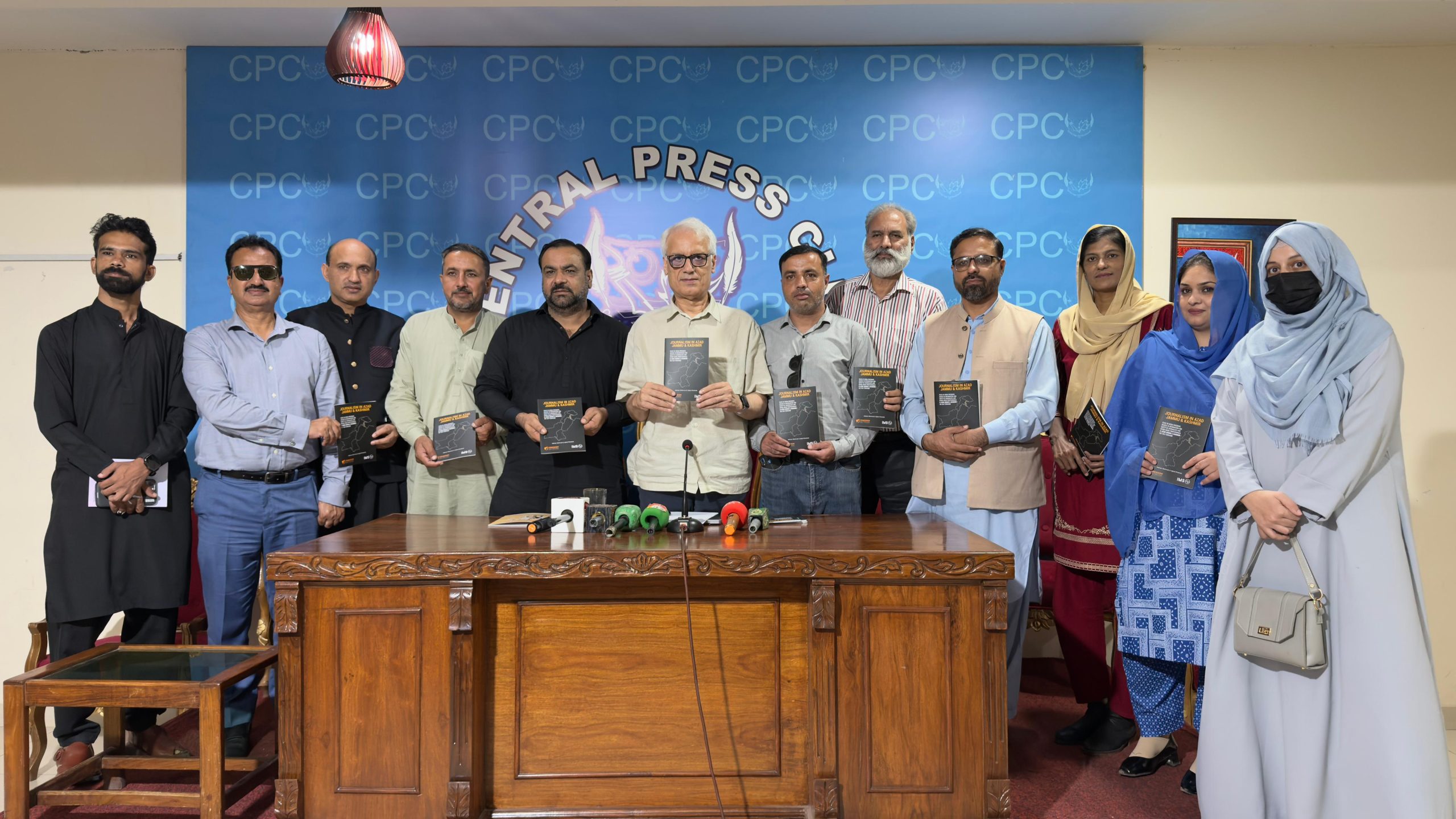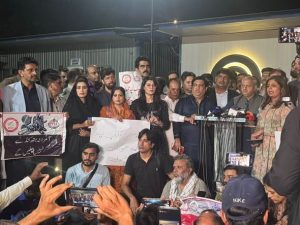Press Release
MUZAFFARABAD (AJK) 17 September 2025: Uniquely influenced by its geopolitical and socio-culture context, native media lays the landscape for journalism and its practitioners with censorship, harassment, legal barriers and systematic shortcomings highlighted the precarious state of media freedoms in Azad Jammu and Kashmir region of Pakistan, a Freedom Network research report has revealed.
“Threats to free speech in AJK emanate from multiple sources, including government authorities, caste-based power structures, extremist groups, and organized crime. Journalists often face pressure from influential figures, including government agencies, business elites, and local mafias,” the report’s findings listed some of the challenges media in AJK is facing.
The report, titled “Journalism in Azad Jammu & Kashmir: State of Media Freedom, Access to Information and Safety of Journalists and Other Media Professionals in Azad Jammu & Kashmir – Way Forward,” was part of Freedom Network series of reports to look into state of media freedoms in peripheries.
The publication of this report came with technical support from International Media Support (IMS) which, in partnering with local stakeholders, pioneered to make safety of journalists a “national agenda” after the UN Plan of Action on the Safety of Journalists and the Issue of Impunity was launched in 2012 in five pilot countries, including Pakistan.
Earlier such situation reports were released about Gilgit Baltistan and South Punjab this year. While similar reports were released about Sindh and merged tribal districts of Khyber Pakhtunkhwa.
“The rise of native digital journalism has introduced new risks, with many digital journalists operating without editorial guidance and taking unnecessary risks. Organized crime and extremist groups also pose significant threats, as journalists reporting on sensitive issues risk attacks, intimidation, and defamation accusations.”
“Media is facing severe limitations, including financial constraints, bureaucratic controls, and safety concerns as this report reveals. But rise of native media is a new discovery that not many of us would know. I hope this report will provide good food for thought for all stakeholders to work jointly to address the challenges this report brings forward,” Freedom Network Executive Director Iqbal Khattak said on the eve of launch of the report here on 18 September 2025 in collaboration with Central Press Club in Muzaffarabad and local unions of journalists.
“Low wages, poor service structure and a lack of professional standards” for media practitioners led to “little money” for media practitioners, the report highlighted. “Many journalists are unpaid or underpaid, and some are forced to rely on their outlets to pressure advertisers for revenue,” it said.
The absence of industry regulations, the report said, “further exacerbates” the precarious working conditions, with little protection for journalists reporting controversial issues.
Threat matrix
While AJK government claims to prioritise citizen safety, no specific measures were in place to address the risks journalists faced, the report underscored. “Formal protective laws for journalists – like one in Sindh province and other at the federal level – are absent and journalists were left to navigate hostile environments without support.
“This lack of security is reflected in incidents of harassment, threats, and attacks on media professionals.”
Censorship in AJK, according to the report, manifested in various forms, including state-imposed restrictions to avoid reporting certain stories, self-censorship and digital silencing.
The government “has expanded the legal definition of ‘community’ to include itself, enabling the prosecution of journalists under the law that criminalise criticism of government institutions, the report highlighted legal threats journalists faced.
Essentially, this law says that you can be imprisoned for seven years if you ridiculed the community,” explained State Views Managing Editor Kashif Mir told the report authors.
The lowest gender representation was a worrying factor for women’s representation in media. “There are only five women journalists in AJK out o f85 members. Only two have been granted membership of the press club,” the report highlighted.
Digital media was rapidly reshaping the AJK media landscape, the report quoted Daily Jehan Kashmir Editor Abrar Haider as saying. “Digital media is replacing both print and electronic journalism very fast,” he went on to add.
“Social media platforms also contribute to censorship, with algorithms reportedly favouring Indian narratives and silencing Kashmiri voices,” the report said.
The report recommended empowering, capacitating for AJK journalists and continuous institutional support from media development groups, strengthening advocacy for media freedoms, legal framework for combating impunity for crimes against journalists, right to information regime, gender sensitization of media and support for digital media. Ends
CAPTION: A group photo of journalists holding copies of “Journalism in Azad Jammu & Kashmir: State of Media Freedom, Access to Information and Safety of Journalists and Other Media Professionals in Azad Jammu & Kashmir – Way Forward” during a launch event in Central Press Club in Muzaffarabad, Azad Jammu and Kashmir. FN photo
Click below link to download PDF version full report:

